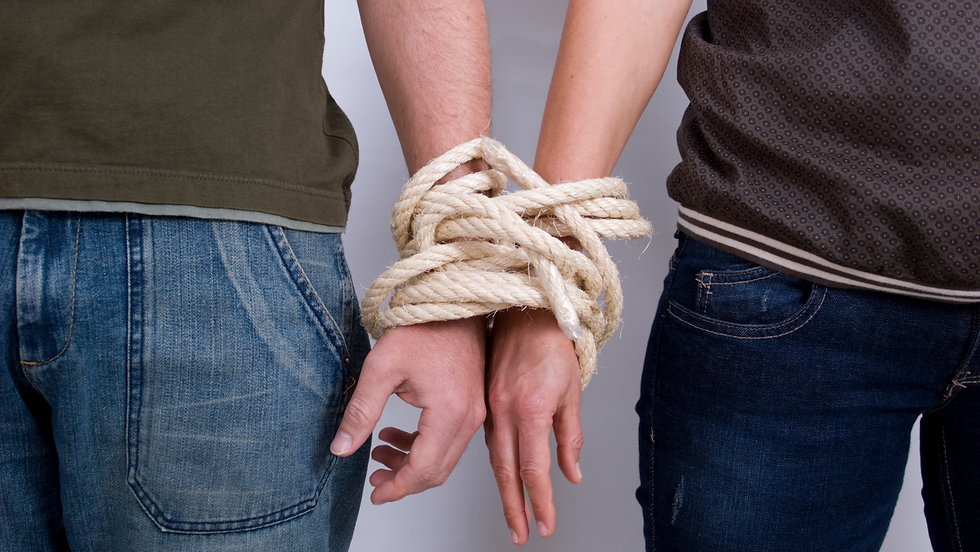Are You CoDependent?
- Infinite Therapeutic Srvs
- Mar 20, 2023
- 2 min read
Updated: Mar 26, 2023
'In a Codependent relationship, one partner adds value and feels worthless if they don't, while the taker enjoys being cared for.'

Codependency is a learned behavior. Codependency needs two players: the giver and the taker. Each player adapts their behaviors to maintain the services of the other. In essence, one does for the other what the other cannot. It is the relationship's ongoing dance, and neither can break free until each recognizes the steps that can end the cycle.
Recognizing Codependency Symptoms In Your Relationship:
You are in a constant state of alert to avoid conflict.
You ask permission from your partner to continue with daily tasks.
You apologize when it's not your fault.
You feel sorry for your partner when they have hurt you.
You look for ways to help in their struggles.
You say yes when you want to say no.
You rely on doing things for your partner to feel good about you.
You place your partner on a pedestal and give them unfair recognition.
You do not feel like you are whole in the relationship.
There is no 'me time.'
In the Codependency dance, there is a taker and a giver…
The Taker:
Immaturity
Addictions
Entitlement
Needing Attention
Irritable or Angry
Compares self to others
Relies on their partner
Plays the victim
The Giver:
Excessive empathy
Role of martyr
Gives more
Forgiving
Competent
In control
Empowered
Supportive
Loves and care without conditions
Side Note: All characteristics can be found in each player on some level.
The Emperor's clothes: On the dancefloor, you may display the fine skill of exquisite movements that seem to keep the balance between you and your partner. Yet, on the inside, you struggle to maintain the facade.
Do You..
Constantly seeks the approval of your partner
Struggle to feel fulfilled, joyous, and purposeful without your partner.
Experiences high levels of anxiety.
Postpones or together dismisses time for self.
Insist things run perfectly to please your partner.
Feels challenged with receiving from others.
Inside, you feel empty and only feel filled by your partner.
The relationship is stressful.
Tools to help you break free from the Codependency dance:
Reflect on the symptoms mentioned and consider which characteristic fits, so you know what to work on.
Reflect on your past and take the time to write down what happened in your life that influenced the current dynamics of your relationship, {growing up with abuse, unwell family member(s), unhealthy parental relationship in your childhood).
Explore factors that prevent you from including more 'me time' in your daily tasks.
Learn self-care tools to apply little by little.
Pay attention to negative thoughts, challenge their authenticity, and develop a positive counterattack.
Learn and place practical, healthy boundaries, and pay attention when they have been crossed.
Reflect and make a list of things that are a burden.
Recognize your emotions and give them a voice through writing and creative self-expression.
Research proactive communication skills, and begin to apply to your daily vocabulary.
Know when it's time to leave. If you are in an abusive relationship, seek help. Talk to a trusted loved one. Call a support hotline. Know that there is help that can help you transition to a safe and secure life.
Determine what you need to become the master of your life without putting your needs, goals, and desire on the sidelines while saving others.
~ The Codependency Recovery
REFERENCES:
The Codependency Recovery Workbook, A 12-Week Master Plan to Stop Being Codependent and Start Loving Yourself. Andrei Nedelcu (2022).




Comments